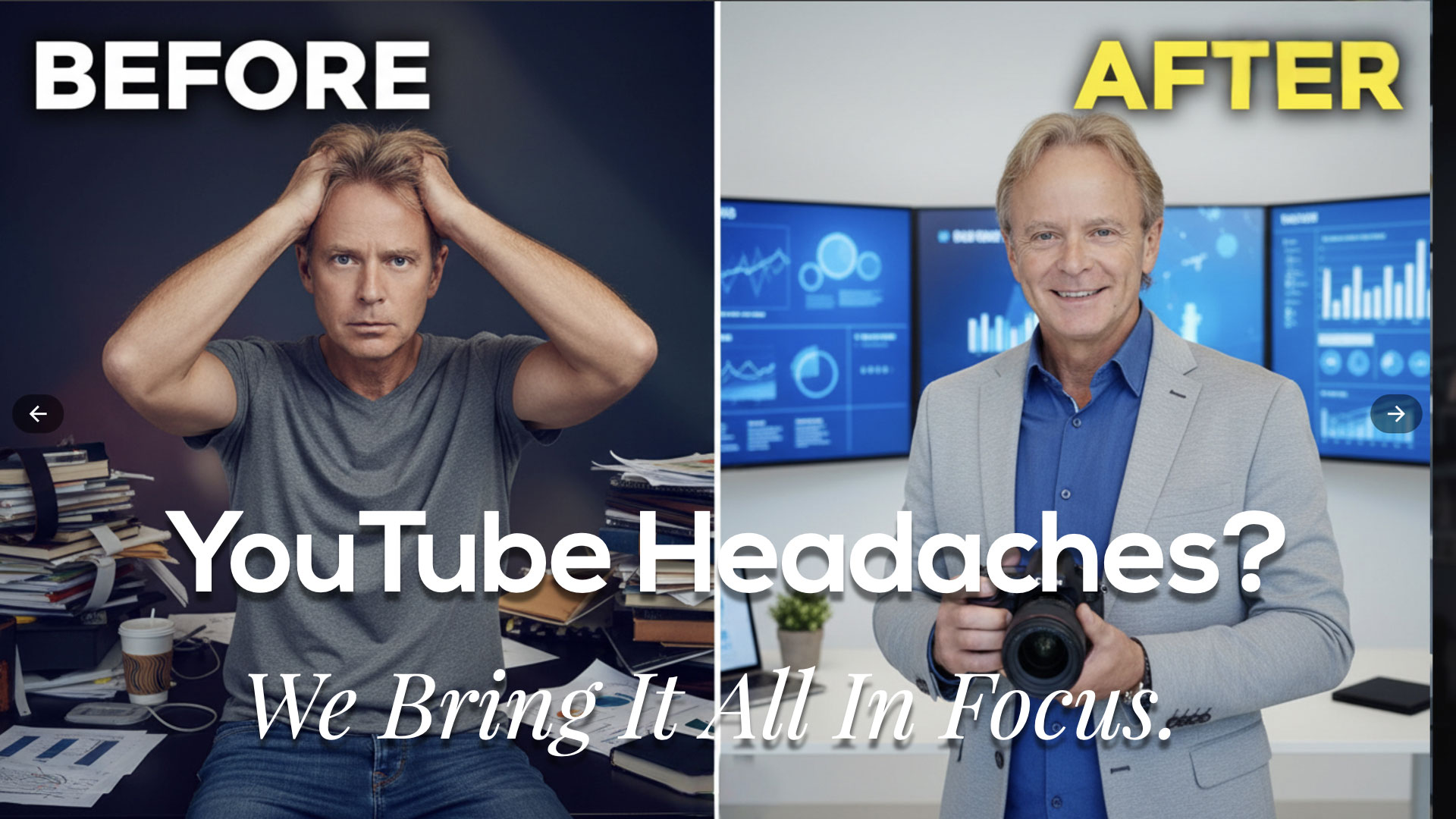Finding an Affordable ROI-Focused Marketing Agency in 2025
Learn how to identify marketing agencies that prioritize measurable returns without breaking your budget, with key questions to ask and red flags to watch for.
In today’s competitive business landscape, finding a marketing agency that delivers genuine return on investment while staying within budget has become more challenging than ever. Many businesses struggle with agencies that promise the world but fail to deliver measurable results, leaving them with depleted marketing budgets and little to show for their investment.
The key to success lies in identifying agencies that prioritize data-driven strategies and transparent reporting over flashy presentations and empty promises. This comprehensive guide will help you navigate the process of selecting an affordable, ROI-focused marketing agency that can truly drive your business growth in 2025.
Understanding ROI-Focused Marketing
ROI-focused marketing goes beyond vanity metrics like impressions and likes. It concentrates on measurable outcomes that directly impact your bottom line, such as lead generation, conversion rates, customer acquisition costs, and revenue growth. An agency that truly understands ROI will establish clear benchmarks, track performance meticulously, and adjust strategies based on real data rather than assumptions.
When evaluating potential agencies, look for those that speak in terms of concrete business outcomes rather than abstract marketing concepts. They should be able to explain how their strategies will translate into actual revenue for your business and provide realistic timelines for achieving these results.
Essential Questions to Ask Potential Agencies
Before committing to any marketing agency, prepare a comprehensive list of questions that will reveal their true capabilities and approach. Start by asking about their reporting structure and what metrics they consider most important for businesses in your industry. A quality agency should be able to provide detailed examples of how they’ve improved ROI for similar clients.
Inquire about their process for setting goals and measuring success. The best agencies will work with you to establish specific, measurable objectives that align with your business goals. They should also be transparent about their pricing structure and explain exactly what services are included in their packages.
Ask about their team structure and who will be working on your account. Understanding the experience level and expertise of the people handling your marketing is crucial for predicting the quality of results you can expect. Request case studies or references from clients in similar industries to yours.
Red Flags to Watch For
Several warning signs can indicate that an agency may not be the right fit for ROI-focused marketing. Be wary of agencies that guarantee specific results or promise overnight success. Legitimate marketing takes time to show results, and any agency making unrealistic promises is likely overselling their capabilities.
Avoid agencies that are reluctant to provide detailed reporting or seem evasive when discussing their measurement methods. Transparency in reporting is essential for ROI-focused marketing, and any hesitation to share data should raise immediate concerns.
Be cautious of agencies that push expensive, long-term contracts without first demonstrating their value through smaller projects or trial periods. A confident agency should be willing to prove their worth before asking for significant commitments.
Watch out for agencies that focus primarily on creative work without discussing strategy or measurement. While creative elements are important, they should always serve a strategic purpose that contributes to measurable business outcomes.
Budget Considerations and Cost Structure
Understanding different pricing models can help you find an agency that fits your budget while still delivering quality results. Some agencies charge flat monthly retainers, while others work on project-based pricing or performance-based compensation. Each model has its advantages depending on your specific needs and budget constraints.
Retainer-based pricing often provides the most predictable costs and allows for ongoing optimization of campaigns. Project-based pricing can be more cost-effective for specific initiatives but may not provide the continuity needed for long-term growth. Performance-based pricing aligns agency incentives with your business outcomes but may result in higher costs when campaigns are successful.
Consider the total cost of working with an agency, including any additional fees for tools, software, or third-party services. Some agencies include these costs in their pricing, while others charge them separately. Understanding the complete financial picture will help you make more informed decisions.
Evaluating Agency Expertise and Specialization
Different agencies excel in different areas of marketing, and finding one that specializes in your industry or marketing needs can significantly impact your ROI. Some agencies focus on specific industries like healthcare, manufacturing, or professional services, while others specialize in particular marketing channels like search engine optimization, pay-per-click advertising, or social media marketing.
Review the agency’s portfolio and case studies to understand their experience with businesses similar to yours. Look for evidence of their ability to adapt strategies to different industries and business models. An agency with relevant experience will be able to hit the ground running and avoid common pitfalls that could waste your marketing budget.
Consider the agency’s technical capabilities and whether they have experience with the marketing tools and platforms that are most relevant to your business. This includes everything from customer relationship management systems to marketing automation platforms and analytics tools.
Communication and Reporting Standards
Effective communication is essential for successful ROI-focused marketing partnerships. Establish clear expectations for how often you’ll receive updates, what format reports will take, and who your primary points of contact will be within the agency.
Quality agencies provide regular, detailed reports that go beyond surface-level metrics to explain what the data means for your business. These reports should include actionable insights and recommendations for improving performance, not just a collection of numbers and charts.
Discuss the agency’s process for handling feedback and making adjustments to campaigns. The best agencies welcome client input and can quickly pivot strategies when data indicates that changes are needed.
Technology and Tool Integration
Modern marketing relies heavily on technology, and the right agency should have access to professional-grade tools and platforms that can maximize your ROI. This includes analytics platforms, marketing automation software, customer relationship management systems, and specialized tools for different marketing channels.
Ask potential agencies about their technology stack and how they integrate with your existing business systems. Seamless integration can improve efficiency and provide better data insights, while poor integration can lead to data silos and missed opportunities.
Consider whether the agency has experience with emerging technologies and trends that could benefit your business. This might include artificial intelligence tools, advanced attribution modeling, or new advertising platforms that could provide competitive advantages.
Building Long-Term Partnerships
The most successful marketing relationships are built on long-term partnerships rather than short-term transactions. Look for agencies that demonstrate genuine interest in understanding your business and industry, not just executing marketing tactics.
Evaluate the agency’s approach to growth and scalability. As your business grows, your marketing needs will evolve, and the right agency should be able to adapt and scale their services accordingly. This might mean expanding into new marketing channels, targeting new customer segments, or adjusting strategies based on changing market conditions.
Consider the agency’s culture and values to ensure they align with your business. A good cultural fit can lead to better communication, more creative solutions, and a more enjoyable working relationship that benefits both parties.
Making Your Final Decision
After evaluating multiple agencies, create a structured comparison that weighs each option against your specific criteria. Consider factors like relevant experience, proposed strategies, pricing, communication style, and cultural fit. Don’t automatically choose the cheapest option, but also be wary of agencies that are significantly more expensive without clear justification.
Consider starting with a smaller project or trial period to evaluate the agency’s performance before committing to a long-term relationship. This approach allows you to assess their capabilities and working style with minimal risk.
Trust your instincts about the people you’ll be working with. Marketing partnerships require close collaboration, and you should feel confident in the agency’s ability to understand and represent your business effectively.
Remember that finding the right ROI-focused marketing agency is an investment in your business’s future growth. Take the time to thoroughly evaluate your options, ask the right questions, and choose a partner that can help you achieve sustainable, measurable results within your budget constraints.


